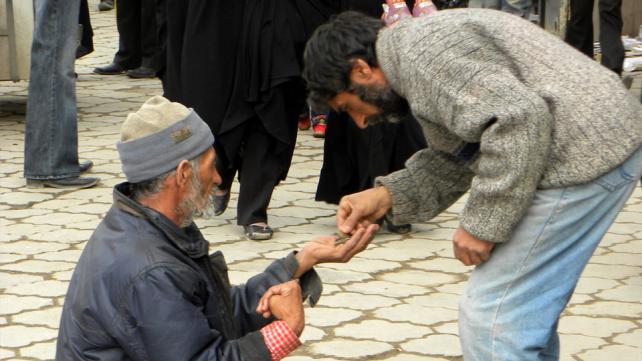
The payment of Zakat becomes obligatory on every sane and mature Muslim and Muslimah whenever there is an economic activity resulting in the net increase in their wealth and have many mentions of Zakat in Quran.
The following are the categories of production. Profit, investments and savings are subject to Zakat.
- The produce of land. (The rate is one tenth of the produce of the unirrigated and undeveloped land and one twentieth of the produce of the irrigated and developed land.)
- Pure economic profit business.
- Inheritance, once for all.
- Cash, investments, food, merchandise, jewelry, gold and silver kept in the inventory for full one year and above the certain value defined as Nisab.
The rate of Zakat on each of the above categories is different.
The rate of Zakat and the amount of Nisab can be decided by the Islamic State taking into consideration the prevailing standard of living and the risks and uncertainties of different modes of productions.
For the articles in category four the rate of Zakat is two and half percent on the amount which is more than the Nisab.
The Nisab for certain articles is as follows: Silver; 200 dirhams or 21 ozs., Gold; 3 ozs.,
Merchandise, jewelry etc. equal to 21 ozs. of Silver.
If the individual items in category 4 do not come up to the Nisab but the combined value of all the items is more than Nisab, Zakat is obligatory.
It should be kept in mind that these rates of Zakat are the minimum rates and the Muslims have been urged by Allah and the Prophet time and again to pay as much as they can after providing for their legitimate needs.
Thus the rate of Zakat and the amount of Nisab is dynamic with a given minimum, but the maximum amount is left to the Ijma of Ummah.
Who is Deserving of Zakat?
The Holy Quran describes the following eight categories who are entitled to receive Zakat.
1. Fuqara:
The people who have some money but not enough to meet their needs. They live in a precarious circumstances but do not ask for help.
2. Miskins:
These are a very miserable people who do not have anything for food, clothing and shelter. The Khalifa Umar ibn al-Khattab also included in them those who are fit to earn but do not have means to earning.
3. Aamileen (Collectors of Zakat):
The officials engaged in the collection and distribution of Zakat are paid from the Zakat fund.
4. Muallafat-ul-Qulub (Those whose hearts are to be reconciled):
This includes the new Muslims, to strengthen them in Islam, as well as those for whom it may be necessary to give Zakat to win their heart.
5. Fir-riqab.(Emancipation of slaves):
This means the person who wants to free himself from the shackles of slavery should be given Zakat so that he can pay to this category (those persons who are imprisoned for nonpayment of fines).
6.Al-Gharimeen:
This means the people who are in debt, which is more than the assets so that after paying the debt, their wealth that is left is less than the Nisab.
7.Fi Sabeelillah (in the cause of Allah ):
This is a common word used for all good deeds, but in the case of Zakat it means rendering help to an endeavor to serve Islam such as the propagation of Islam, Jihad, etc.
8.Ibn-us-Sabil (the wayfarer):
A traveler, if he is in need of money while traveling , is entitled to Zakat .
Some Essential Points about Zakat
- A person who qualifies to pay Zakat is not eligible to receive.
- It is not permissible to pay Zakat to your husband , wife, parents , grandparents, and the children and grandchildren.
- Expenditure to Zakat fund is not permissible on the construction of mosque.
- It is preferable to pay Zakat to deserving relatives.
- The Zakat of every locality should be spent on the poor inhabitants of the same community except if there is a calamity in other parts of the country or the world.
- Any one who qualifies to receive Zakat, can be given it as assistance or a gift, without telling him that it is Zakat.
- All articles of household use and properties given on rent are exempted from paying Zakat.
- Zakat money of a particular year could be spent during the same year in advance, could be given all at once or in installments.
The Collection of Zakat
In the Islamic state, it is the responsibility of the state to collect and distribute Zakat. The Quran says, "Take alms of their wealth and make them pure and clean "
The Prophet says: I have been commanded to collect zakat from the rich among you and distribute it to the poor among you.
In case an Islamic society does not exist or in a non-Islamic society, the local organization of the Muslims should make arrangements for the collection and distribution of Zakat.
Wherever such arrangements exist, every Muslim is?required to pay Zakat to this organization and conform to the rates and the amount of Nisab decided by the organization.
Allah has made Zakat one of the pillars of Islam and has often mentioned it in the Quran immediately after the Prayer, saying, "And perform Prayer and give Alms ".
The Prophet said, "Islam has been built on five [pillars]: testifying that there is no god but Allah and that Muhammad is the Messenger of Allah, performing the prayers, paying the Zakat, making the pilgrimage to the House (Hajj), and fasting in Ramadan" (Bukhari, Muslim).
Allah has warned those who do not give Zakat that they will face dire consequence. He says, "O you who believe! Verily, there are many of the rabbis and the monks who devour the wealth of mankind in falsehood, and hinder (them) from the way of Allah. And those who hoard up gold and silver, and spend it not in the Way of Allah-announce unto them a painful torment (Quran 9:34).
"Beggars in the street 1" by Sonia Sevilla - Own work. Licensed under Creative Commons Zero, Public Domain Dedication via Wikimedia Commons - http://commons.wikimedia.org/wiki/File:Beggars_in_the_street_1.JPG#mediaviewer/File:Beggars_in_the_street_1.JPG

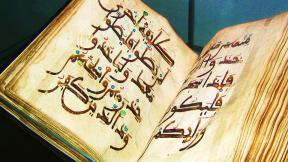

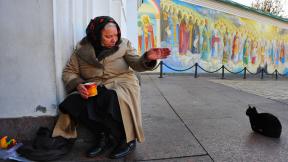
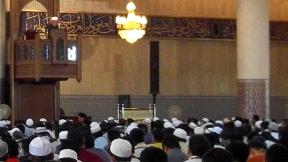
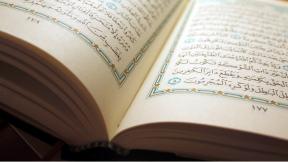


Comments
The details on this articles
The details on this articles are perfect. If anybody is confused about how to calculate zakat online. Click on Zakat Calculator.
Location
Nisab
I'm a farmer so please let me know how do I calculate Nisab
Zakat
I don't really understand where 2.5 per cent even came from. It's not mentioned in the Quran. Hadiths aren't that reliable, since many of them contradict with each other. One hadith that I certainly can't believe people are actually trusting is: "Command your children to make salah (prayer)when they become seven years old, and spank them for it (salah) when they become ten years old, and arrange their beds (to sleep) separately. " (Abu Dawud)
I'm just so sad how people are just so blind. Why would you hurt a child? There was definitely a reason why the story of Musa unintentionally killing a man was mentioned in the Quran. The moral of that story is not to hit anyone. Please wake up from this. It's a reason why many people are hating us muslims.
Location
THIS ARTICLE HELOED ME ALOT IN UNDERSTANDING ZAKAT.THANX FOR YOUR HELP. MAY ALLAH BLESS YOU.
Location
zawkat MINIMUM KETNE GOLD KE BAD ZAWKAT DENA HAI YA 7.5 TOLA KE BAD ZAWKAT DENA HAI YA TOTAL EXAMPLE 10 GRAM KA DENA HAI thanks
Location
It is permissible for a wife to pay Zakat to her husband as per Hadith. The article may be modified.
Location
Easy and in formative interpretation.
Location
being brief, i am able to understand the matter aptly
Location
being brief, i am able understand the matter aptly
Location
Please include answers to the following:Is Zakat payable on agricultural land or only 'ushar' is enough on produce.Is Zakat payable on uncultivated agricultural landIs Zakat payable on kept aside for selling to develope housing / commercialIs Zakat payable in instalments in preceding or proceeding yearThanks in anticipation of earliest clerifications
Location
Pages
Add new comment